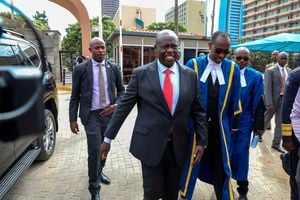
The new year 2024.
Imagine you are the lookout on the Titanic with the responsibility to spot icebergs and warn the captain in time for the slow-turning gigantic ship to avoid them before it all ends in tears. There are five key spots you should track with great care as you scan the roiling seas for signs of danger.
The first is 2024 being called the Year of Democracy; nearly half the population of the planet will vote in an election. It’s been discussed in world media, from Foreign Policy to MSNC. Voters in the world’s most populous democracy, India, those from the second, USA, and the other three most populated—Indonesia, Pakistan and Bangladesh—will be going to the booth.
It’s an omen, not a necessarily a good one, as democracy is at its weakest since it became a thing. It is losing its attraction in many places due to the challenge of identity politics and the populism it spawns. Nowhere is this as manifest as in the US. Democracy worked because it was in alignment with the power needs of the dominant group. The white majority owned the wealth and exercised the power.
The US is a great place to be rich in. There is little discrimination against rich people; they are fawned upon and have their bottoms kissed by servants, many of whom are migrants. I spent a glorious week in Beverly Hills some years ago while attending classes at Sony Pictures, taught by the Anderson School of Management at UCLA. At restaurants, the chef would come to discuss how we wanted our expensive steak cooked. It was glorious.
Liberal whites
However, the white majority is in danger of losing its dominance to a coalition of migrants and liberal whites. And they have risen against that process; you hear them chant “you will not replace us”, establishing a dichotomy of “them” and “us”. The fear of being replaced, privileges being taken away, is fanned by populists such as Donald Trump, who has been describing migrants as poisoning the blood of the nation. And it gives rise to racist groups such as Neo-Nazis.
The question is whether identity politics will over-power democracy and lead to the creation of minority rule. Remember Trump saying “I got your vote and it is the one that matters”? I’m one of those who think that, bar some major tackle, Trump stands a very good chance of being elected President again. And even if he is not, it is just a matter of time before a leader espousing nativist policies is.
The thing is that the US, even with its rather bad reputation as a bully, is a trend setter and direction giver in the world. If democracy falls there, it falls elsewhere.
The second spot to watch are the power gymnastics of Ethiopia, our imperial neighbour to the north. It’s acquisition of rights to a sea port on the Red Sea vide a Memorandum of Understanding signed by Prime Minister Abiy Ahmed and President Bihi Abdi of the self-declared Republic of Somaliland shouldn’t be seen merely as the Cheshire Cat’s grin; there is a big animal behind it. It will allow Ethiopia to become a naval power in a strategic chokepoint on an important sea route. If you see how Houthis are holding the world hostage with their drones and missiles, then you understand how important this is.
It also means that the Middle East conflict system is making landfall on the African mainland in a meaningful way: UAE is up to its neck in the deal and they bring with them the cleavage between Sunni powers and Iran, which is playing out in the war in Yemen and the Israel-Palestine conflict. This has the potential to determine the flow of our future.
The other is the ‘Dombolo Democracy of the Congo’. President Tshisekedi has been declared winner in an election that has caused uproarious laughter in the opposition, especially Swahili-speaking residents of Eastern DRC. Mr Tshisekedi has assembled an army from SADC, led by South Africa and including Tanzania and Burundi, with the purpose of obliterating M23, the most powerful of the 200 rebel groups.
Some are seeing it as a proxy war between South Africa and Rwanda, which is sympathetic to some of the groups. And it has major implications for peace and security and the stability of trade relations in the EAC. As President Museveni of Uganda has pointed out, this is a political situation that can be resolved through negotiations. And there exists a credible process, the ‘Nairobi Process’ supported by the EAC, to sort out that matter.
Notorious paedophile Jeffrey Epstein, who preyed on children and for many years trafficked them to be raped by powerful people in the US and Europe, has reached out from the grave and delivered a blow in the face of his clients. The list of influential public figures, including former presidents, who associated with him or raped children provided by him has been made public. The outrage it will cause will destroy many people and let loose massive changes in culture, politics and law for years to come.
The war in Gaza and our own journey down the slippery path from democracy to autocracy are other points to watch. Keep an eye peeled.
Mr Mathiu is a media consultant at Steward-Africa and former Editor-in-Chief of Nation Media Group. [email protected].










